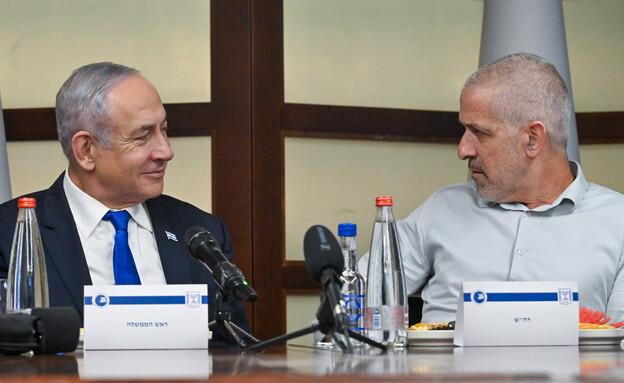
In a secret meeting of the Knesset’s Foreign Affairs and Defense Committee last winter, Shin Bet Director Ronen Bar arrived with a document he intended to distribute. The committee members were briefed; after all, this subcommittee regularly deals with highly classified information. To their surprise, Bar handed out a compilation of disparaging quotes about the Shin Bet—from public figures ranging from Yair Netanyahu to Likud MK Tally Gotliv. “Feel free to take this with you,” Bar offered. But Gadi Eisenkot, seasoned in the nuances of political optics, gently suggested: “Perhaps these are better left here.”
The collaboration between Bar and Attorney General Gali Baharav-Miara stems from shared suspicions regarding the current government’s motives, and a mutual perception that the ruling coalition threatens their institutions and advisors. At times, this collaboration bordered on the absurd. A few months ago, when Baharav-Miara attempted to force the establishment of a state commission of inquiry on the government, she cited a letter from Bar asserting that hostilities were essentially over. Yet this week, explaining why he wouldn’t resign, Bar justified his stance by pointing to “high security tensions and the genuine possibility of renewed fighting in Gaza.” Such maneuvering isn’t likely to enhance Bar’s legacy. And if democracy truly is at stake, as he seemingly believes, clinging onto his position won’t save it.
Nevertheless, Prime Minister Netanyahu’s recent decision to dismiss Bar turned lemonade back into lemons. Instead of firing Bar at a more logical time—such as during the ceasefire or shortly after the IDF Chief of Staff’s resignation—Netanyahu waited until the ceasefire itself was on the brink of collapse. Meanwhile, developments in the “Qatargate” scandal clarified weeks of speculation: allegations surfaced that Qatari funds were sent via an American Qatar lobbyist to Israeli officials during wartime, reportedly in exchange for favors within the Prime Minister’s Office.
Weeks ago, when Netanyahu initially discussed firing Bar, most of his advisors suggested delaying until after Baharav-Miara’s removal was complete. “You can’t fire her, fire him, and simultaneously thwart a state commission of inquiry,” they warned. Netanyahu listened—and waited.
This time, Netanyahu skipped the consultations. Hearing former Shin Bet chief Nadav Argaman’s threats on primetime television and suspecting Bar’s involvement, he quickly made his decision. Indeed, Netanyahu’s coalition partners only learned about the dismissal from television reports. Senior officials, who spent the festival of Purim immersed in intense security deliberations authorizing operations in Gaza—with Bar present—were particularly astonished. They knew an offensive was imminent and understood how complicated it would be to dismiss the Shin Bet head amid such a crisis. It eerily echoed previous tensions, reminiscent of then-Defense Minister Yoav Gallant’s uncertainty during the beeper operation—when he didn’t know whether the notes being handed to Netanyahu dealt with his own dismissal or with blowing off the hands of thousands of Hezbollah operatives.
The above is an excerpt from my Shabbat column in Yedioth Ahronoth.






